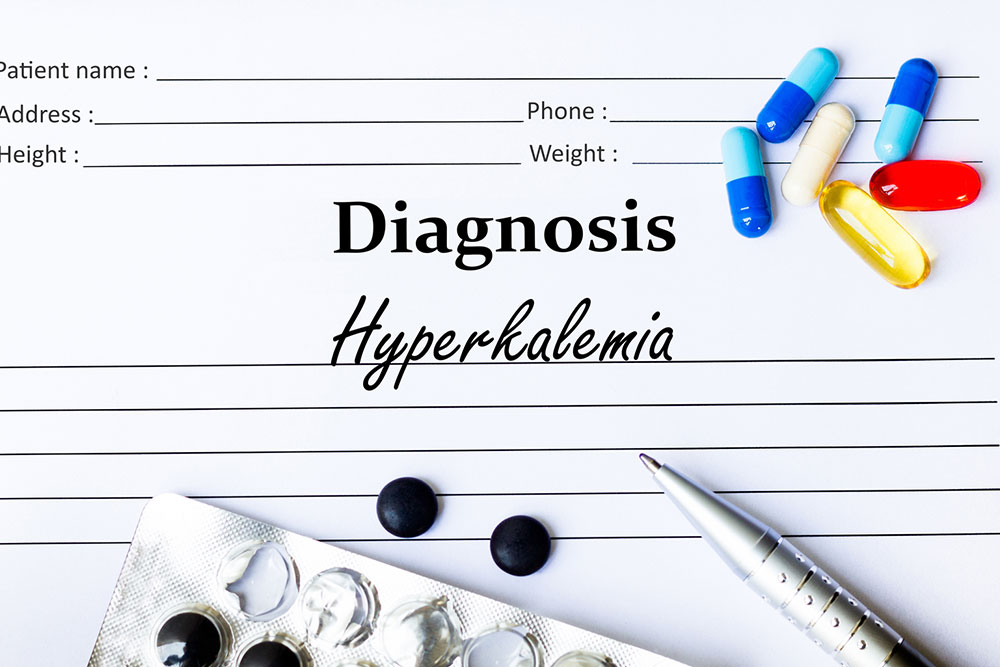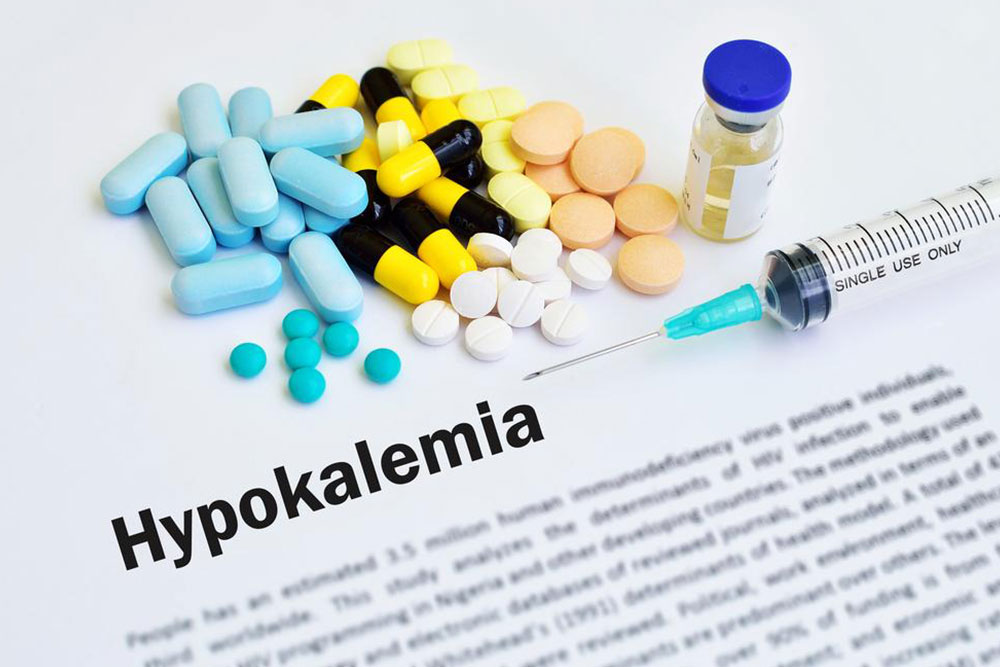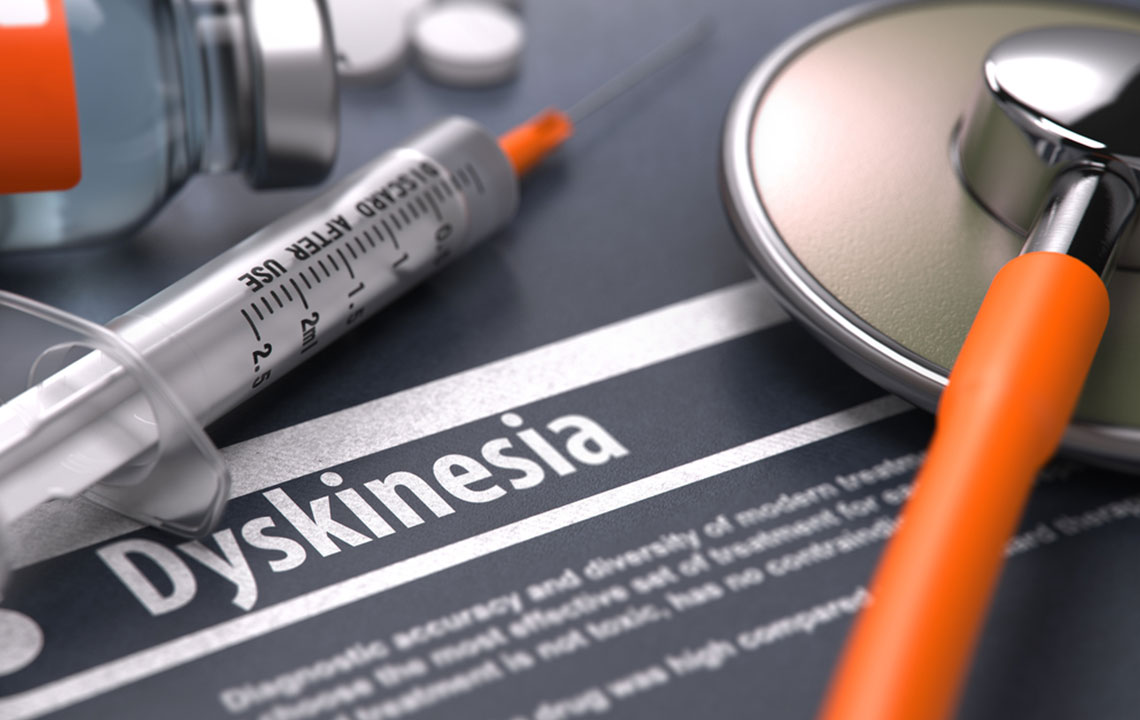Comprehensive Guide to Hyperkalemia: Causes, Symptoms, and Effective Treatment Methods
Hyperkalemia is a critical condition characterized by high potassium levels in the blood, which can cause serious health issues including cardiac problems. This comprehensive guide covers causes, symptoms, and treatment options, emphasizing the importance of early detection and management. From kidney impairment to medication effects, understanding hyperkalemia helps prevent life-threatening complications. Immediate interventions, lifestyle changes, and regular monitoring are key to effective control. Stay informed to safeguard your health against this potentially dangerous condition.

Comprehensive Guide to Hyperkalemia: Causes, Symptoms, and Effective Treatment Methods
Hyperkalemia is a serious medical condition characterized by elevated levels of potassium in the bloodstream. Maintaining proper potassium levels is essential for normal cellular function, nerve signals, and muscle contractions, including those of the heart. Typically, blood potassium levels are considered normal within the range of 3.6 to 5.2 millimoles per liter (mmol/L). When levels rise above 6.0 mmol/L, it can become life-threatening and requires immediate medical attention. Understanding the causes, recognizing the signs, and knowing the available treatment options are critical steps in managing hyperkalemia effectively.
Recognizing the Symptoms of Hyperkalemia
Signs and symptoms of hyperkalemia can vary significantly based on the severity of potassium elevation. Mild increases often present with no obvious symptoms or may cause subtle feelings of numbness or tingling. However, as potassium levels continue to rise, more blatant symptoms become evident, signaling an urgent need for medical assessment. These symptoms include:
Numbness and Tingling: Patients may experience unusual sensations such as prickling or tingling, especially in the extremities.
Nausea and Vomiting: Gastrointestinal disturbances may occur, adding to patient discomfort.
Breathing Difficulties: Shortness of breath or a sensation of breathlessness may develop, indicating potential respiratory compromise.
Chest Discomfort: Chest pain or tightness can be a symptom of cardiac stress caused by high potassium levels.
Irregular Heartbeat or Palpitations: Changes in heart rhythm are among the most dangerous symptoms and require immediate evaluation.
It is crucial to recognize these symptoms early because severe hyperkalemia can lead to serious complications such as muscle paralysis or even sudden cardiac arrest if untreated.
Common Causes of Hyperkalemia
Understanding the root causes of hyperkalemia is vital for effective prevention and management. The primary trigger is often related to kidney function impairment, as healthy kidneys are responsible for regulating and excreting excess potassium through urine. When kidney function declines, potassium accumulates in the bloodstream, leading to hyperkalemia. Common causes include:
Kidney Impairment: Chronic kidney disease, acute kidney injury, or other renal conditions significantly impair the body's ability to excrete potassium efficiently.
Medications: Certain drugs can disrupt potassium balance, notably ACE inhibitors, angiotensin receptor blockers (ARBs), some diuretics, and specific chemotherapy agents. Excessive intake of potassium supplements can also contribute.
Endocrine and Hormonal Disorders: Conditions such as Addison’s disease, which involves adrenal insufficiency, disrupt hormone-driven regulation of potassium.
Dehydration and Severe Illnesses: Loss of fluids through dehydration, severe burns, internal bleeding, or conditions causing cellular breakdown release potassium into the bloodstream.
Muscle Breakdown (Rhabdomyolysis): Heavy alcohol use, extreme physical exertion, or drug abuse can cause massive muscle cell destruction, releasing large amounts of potassium.
Treatment Options for Hyperkalemia
Managing hyperkalemia effectively involves a combination of immediate interventions to stabilize the patient and long-term strategies to prevent recurrence. Depending on the severity, treatment approaches can be categorized into acute (urgent care) and chronic (preventive measures).
**Acute Management**: Immediate medical intervention is crucial for severe hyperkalemia, especially when the patient exhibits ECG changes or is at risk of cardiac arrest. Hospitalization is often necessary for close monitoring and treatment. Key interventions include:
Intravenous Glucose and Insulin: Administering glucose along with insulin helps shift potassium from the bloodstream into the cells, reducing serum potassium levels rapidly.
Calcium Gluconate or Calcium Chloride: IV calcium temporarily stabilizes the heart muscle and reduces the risk of arrhythmias.
Medications Promoting Potassium Excretion: These include sodium bicarbonate, which can correct acidosis, and diuretics like furosemide that increase kidney elimination of potassium.
Dialysis: In cases of severe kidney impairment or refractory hyperkalemia, dialysis can be used to remove excess potassium directly from the blood.
Discontinuation of Potassium Supplements and Offending Medications: Stopping or adjusting doses of drugs contributing to potassium retention is essential under medical supervision.
**Long-term Management**: Once stabilized, preventing future episodes involves lifestyle and dietary modifications. Patients are advised to:
Follow a Low-Potassium Diet: Foods high in potassium such as bananas, oranges, potatoes, and spinach should be limited.
Avoid Excessive Potassium Supplements: Always consult healthcare providers before taking supplements.
Manage Underlying Conditions: Proper control of kidney disease, hormonal disorders, and other related health issues is essential.
Regular Monitoring: Periodic blood tests help track potassium levels and overall health status.
In conclusion, hyperkalemia is a potentially life-threatening condition that demands prompt and effective management. Early recognition of symptoms, understanding its causes, and adherence to treatment protocols can significantly improve outcomes and reduce risks of severe complications. If you suspect hyperkalemia or have risk factors, consult your healthcare professional promptly for assessment and personalized treatment plans.





